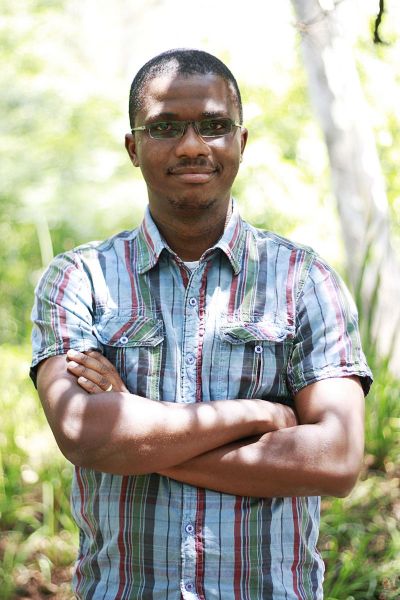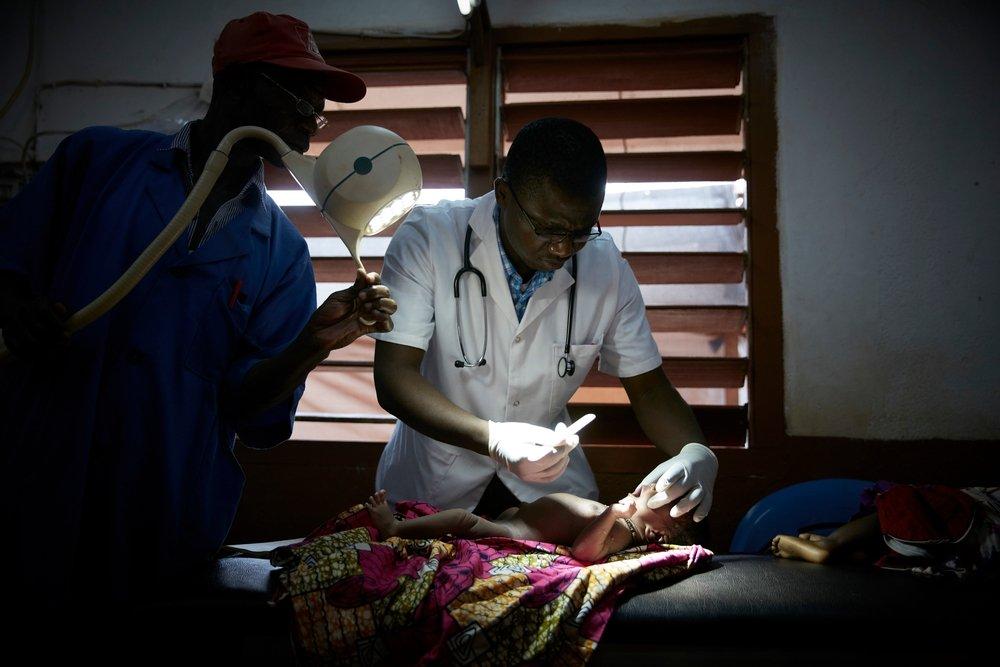
It is a rewarding challenge bringing medical care to difficult and remote parts of the Central African Republic, says MSF medical doctor
Medical doctor Marcel Lomande has always had a desire to help people facing need. After medical school in Kinshasa, he volunteered with the Red Cross, paving the way for his eventual decision to join Doctors Without Borders (MSF) in 2014.
Having just returned from his third MSF assignment in the Central African Republic (CAR), he says he joined to venture where most other people don’t want to go.
“I joined MSF to assist in places where there is a real need. Where MSF works, we are usually the only ones working there. When somebody comes to you and there is nowhere else they can go, you are the only one who can attend to them. That's the kind of assistance I like to provide,” says Marcel.
More than three years after the 2013 coup, millions in CAR still face a critical humanitarian situation. As international donors meet to decide on the future of activities there, MSF is concerned that a vast majority of its 4.4 million inhabitants are still prisoners of violence and fear, without access to basic services, including food, potable water and health care.
For six months Marcel worked in MSF’s pediatric project in Bria in the Haute Kotto Prefecture, where most of his little patients (children under 5 years) suffered from malaria, measles, malnutrition, TB and HIV.
“I like pediatrics because kids are innocent, and they are our future,” he says. “All the situations they face are due to adults who did not make things better for them. They are growing up in an area where nothing is safe. I’d like to help them and give them hope, if possible.”
Marcel was born and raised in the Democratic Republic of Congo. He studied medicine there and moved away to Botswana, where he normally practices medicine. He is a family man, with a wife and two young children. Although it is not easy leaving his family for months at a time, he says the work he is able to do with MSF makes it worth it.
“Each project has its own challenges,” he says, explaining that there are often too many patients to attend to, as well as dealing with difficulties getting supplies and staff in the remote locations where people live and MSF teams work.
“Sometimes in the ICU in Bria, I was one doctor alone with about 15 or 20 kids and no one else to help. I had to run up and down to see that things ran properly and all the patients were treated. You have to adapt to the situation to find the best way to administer treatment and make sure they get well and go home soon.”
“With each MSF assignment, you have to restart everything, every time. It’s difficult but also exciting.”
Marcel enjoyed working with the team of international and Central African staff, who he says make a difference collectively. “On all levels, each of us was part of a good team and, working together, we made a big difference. That’s a wonderful thing to see – how people can work as a team and assist people. It’s not because of one person, it’s because of everyone there.”
“It’s not easy to leave everything and go to the middle of nowhere where there is such need,” he says. “But you see how happy you can be by helping someone – like a small child who traveled 30-40km on a bike or walking. And the day after treating them, when you see those same kids running and playing, you just forget everything you’re missing about home.”
Find out more about MSF's work in the Central African Republic.
